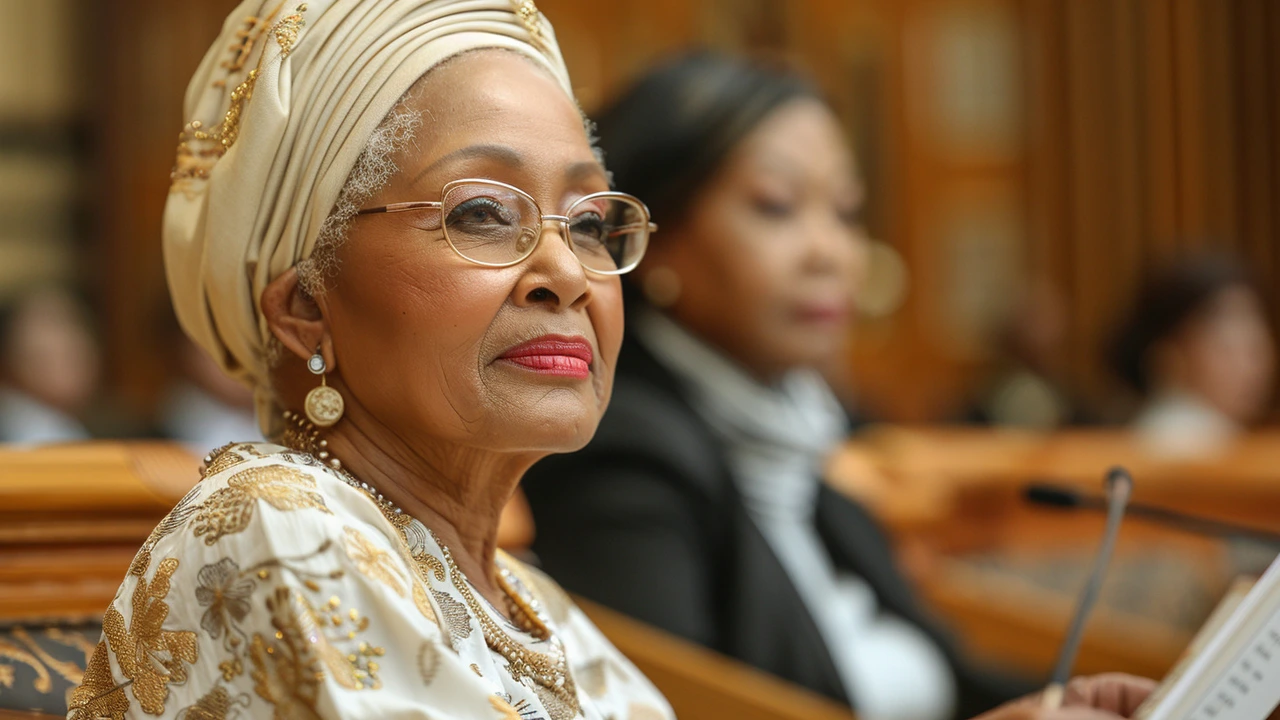Dudu Myeni’s Bosasa Corruption Case Postponed Due to Health Concerns
The much-anticipated corruption trial of Dudu Myeni, the ex-chairperson of the South African Airways (SAA) board, has hit another snag. Myeni, who has long been in the spotlight for her alleged corrupt dealings, especially from her close ties to former President Jacob Zuma, has had her trial delayed yet again, this time due to health issues. The case, which has significant implications for South Africa’s ongoing battle against corruption, will now resume on November 21, 2024. This delay has been met with mixed reactions from both the public and political figures, raising questions about the impact on justice and accountability in the country.
A Shadow of Corruption
Myeni was arrested in September 2023 alongside Trevor Mathenjwa, a former director at Sondolo IT. The charges stem from alleged bribery and corruption involving a staggering R300,000 in illicit payments from Bosasa, a company infamously known for scandal. Bosasa, along with its subsidiary Sondolo IT, has been a central figure in numerous corruption cases, involving many high-profile individuals who’ve wielded considerable influence in South Africa’s political landscape. The charges against Myeni and Mathenjwa revolve around claims that they accepted regular payments to facilitate Bosasa’s business interests, ensuring the company received preferential treatment, steering lucrative tenders their way.
Delayed Justice
Both Myeni and Mathenjwa are currently out on bail set at R10,000 each. Their case is pending until Myeni is deemed fit to stand trial. The initial reaction to the delay was a mixture of concern and skepticism. Investigating Directorate spokesperson Henry Mamothame confirmed the postponement, citing the need for Myeni’s health to improve so she could fully participate in the proceedings. The repeated delays invite skepticism about whether justice is being obstructed by prolonging the trial, especially considering Myeni's history and involvement in serious allegations of corruption.
The Saga of State Capture
To understand the gravity of the accusations against Myeni, it’s crucial to look back at the findings of the Commission of Inquiry into State Capture. This Commission found her guilty of facilitating widespread corruption. It was revealed that she had a significant role in influencing Zuma to grant favors to Bosasa, securing contracts worth approximately R2.3 billion from 2000 to 2016. It was further disclosed that Bosasa paid out an astonishing R75 million in bribes to various top-ranking politicians and officials to secure these tenders, highlighting the scale of corruption.
Myeni’s specific involvement, particularly her alleged acceptance of R300,000 in bribes regularly from Bosasa, puts her at the center of these revelations. Moreover, she is accused of exerting influence to halt investigations against the corporation, demonstrating the intertwining of high-level political influence and large-scale corruption. These findings have shed light on systemic corruption that plagued the upper echelons of power in South Africa, creating hurdles in the pursuit of transparency and good governance.
The Public Outcry and Calls for Justice
The latest postponement of the trial has sparked a wave of public outcry. Critics argue that further delays only serve to reinforce the perception of impediments within the judicial system when it comes to prosecuting high-profile individuals. There’s a prevailing sentiment that influential figures, through resources and connections, have the ability to elude the full force of the law. This case, given its magnitude and the individuals involved, is seen as a litmus test for South Africa’s commitment to combating corruption.
The public demands transparency and swift justice, fearing that the longer the case drags on, the more it erodes trust in judicial processes. Many believe that bringing Myeni and others involved to book is essential in setting a precedent that no one is above the law, regardless of their position or influence. This sentiment is further amplified by the public’s growing frustration with long-standing issues of corruption that have hindered the nation’s progress.
The Road Ahead
Despite legitimate health concerns, there’s significant pressure from both the public and various watchdog organizations for the judiciary to expedite this case. The delay until November 2024 marks yet another chapter in a prolonged saga that has its roots in the extensive report on state capture. Moving forward, scrutiny will be intense, not just on the legal proceedings but also on the measures taken to ensure Myeni is fit to participate in a fair and timely trial.
The stakes are high. The outcome of this trial will reverberate across South Africa, influencing both the country’s fight against corruption and the public’s trust in its institutions. Ensuring a transparent and expeditious process will be crucial in making sure that justice is not only done but is seen to be done.
In these challenging times, the nation watches and waits, with the hope that justice, although delayed, will ultimately prevail.

Comments